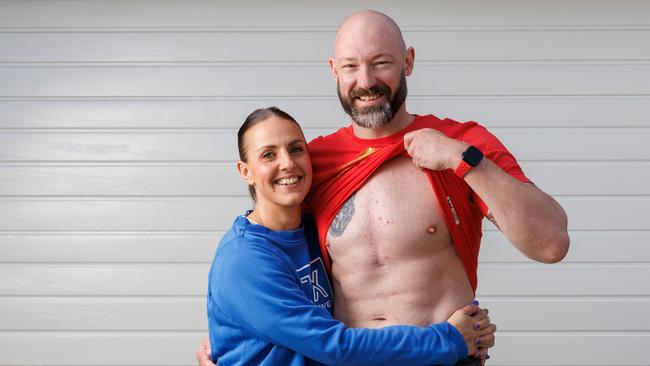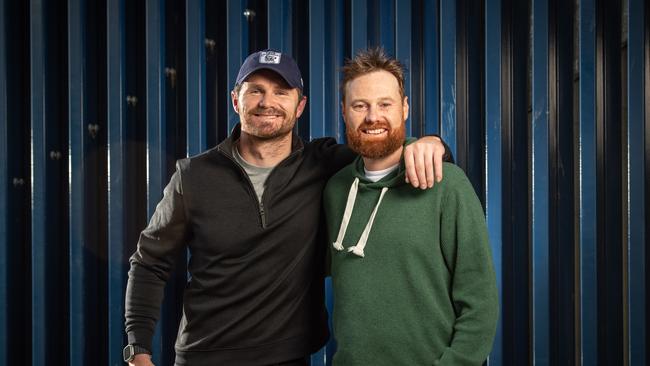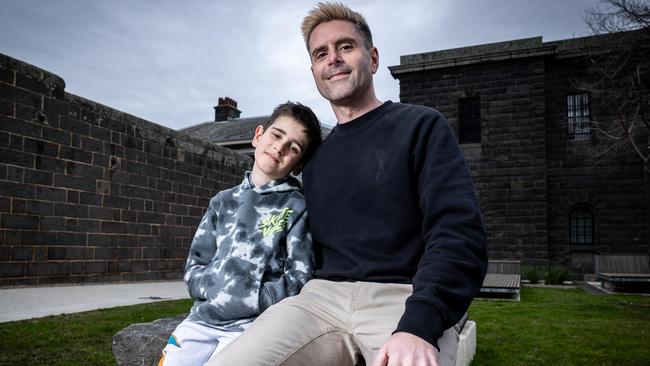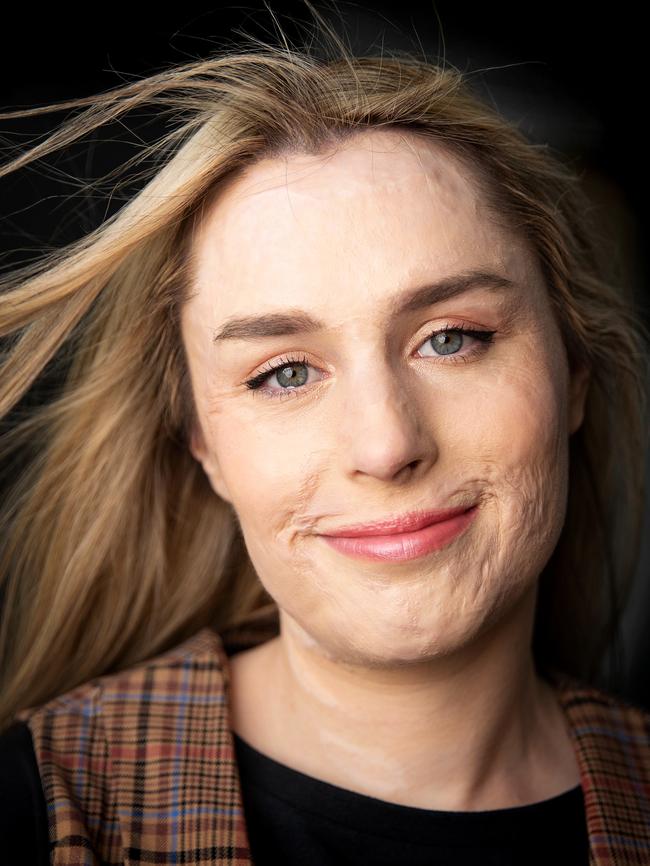Organ and tissue donation and registration in Australia explained
How do you become an organ donor? How do I speak to my family about donation? What are the common myths? See experts’ answers to these questions – and more.
National
Don't miss out on the headlines from National. Followed categories will be added to My News.
Organ and tissue donation saves and changes the lives of thousands of Australians each year.
But it remains a misunderstood topic, with seven in 10 Australians mistakenly believing not everyone can register to become a donor, and three in 10 not knowing any ways to register, according to a recent YouGov poll.
For DonateLife Week – the nation’s major annual campaign to encourage people to support organ and tissue donation, from July 23-30 – we’ve asked the experts to answer key questions and bust myths about donation.
Watch the video with nurse donation specialist Larna Woodyatt (in the player widnow above) or read on.
Why is organ and tissue donation important?
“It quite literally saves lives,” says Larna Woodyatt, whose role as a DonateLife nurse donation specialist sees her support families whose loved ones have died in circumstances where they can be considered for donation.
“There are more than 1800 Australians on the transplant waiting list at any one time, with many thousands more (about 14,000) on dialysis.
“The only hope that those people have for a second chance at life and improved health is through the generosity of organ donors.
“One organ donor has the opportunity to save or improve the lives of up to seven people. And many, many more can be assisted through eye and tissue donation, and even through donation to research.”
DonateLife figures show 1224 Australians received organ transplants from 454 deceased donors last year. This included 713 kidney, 260 liver, 142 lung, 117 heart, 47 pancreas and two intestine transplants.
On top of this, 2340 people had corneal transplants to improve their sight and 224 people received organs from living donors.

How does someone become an organ and tissue donor?
Less than 2 per cent of people die in Australian hospitals in a way that organ donation is possible. In 2022, that was only 1400 people.
A person’s family must then consent to them becoming a donor. Last year, requests were made to families in 1300 cases, with 701 of them saying ‘yes’ – a consent rate of 54 per cent.
Once the eligibility of those people was assessed further, 454 people ultimately became organ donors.
“That’s why it’s really important this DonateLife Week, for us to encourage people to … have a conversation with their family about (their wishes) and then register on the Australian Organ Donor Register,” Ms Woodyatt says.
Who is eligible to register as an organ and tissue donor and how do you do it?
Anyone aged 16-plus can join the Australian Organ Donor Register.
They can do so by filling out a simple form on donatelife.gov.au with their name, date of birth, postcode and Medicare details. This only takes about one minute.
Australians can also register by making three taps in the Medicare app, or via my.gov.au. Organ and Tissue Authority (OTA) chief executive Lucinda Barry has urged the millions of Australians lodging their tax returns on the myGov website this year to take an extra minute to register while they’re there.
Residents of South Australia can register when they renew or apply for their driver’s licence, but this is not currently an option for people in other states and territories.
You can also check whether you are registered at donatelife.gov.au.
After you register, it’s important you tell your family your wishes as they will ultimately decide whether you become a donor.
DonateLife data shows nine in 10 families say ‘yes’ when their loved one is registered and six in 10 if they had discussed donation with their loved one, but only four in 10 agree when a loved one’s wishes aren’t known.
RELATED: Jonathan Brown opens up about late mum becoming a donor
Why fewer Australian families are saying ‘yes’ to organ donation
Australia’s organ transplant waitlist reflects urgent need for registered donors

How do I raise the topic of donation with my family?
Speaking about organ and tissue donation can be “as simple as having a conversation at the dinner table”, Ms Barry says.
OTA national medical director Helen Opdam agrees, noting her experience as a senior intensive care specialist at Melbourne’s Austin Hospital has revealed: “When donation is spoken about in ICU, families often say it came up as a brief mention – they were watching something on TV and their loved one said, ‘I registered as a donor, I think donation is a good thing’.”
Ms Woodyatt suggests using DonateLife Week, stories you see in the media, mentions of donation on TV and so on as catalysts for having the conversation.
“We acknowledge that talking about death is never easy, and a lot of people feel uncomfortable,” she says. “But we know from many families who we have met with and spoken to, that knowing their loved one’s wishes … with regard to donation makes it so much easier for them to make a decision (about donation).”
How does someone come to receive a transplant?
A person must be on Australia’s Organ Waiting List to receive a transplant.
To be waitlisted, patients must pass a “workup” – comprehensive medical testing to ensure the transplant has the greatest chance of success.
An algorithm then finds organ matches, taking into account the urgency of the transplant, how difficult a patient is to find a match for, how good a match the organ is for the patient, and how long a person has been waiting.
The most recent data, from OrganMatch, shows 1804 people are on the waitlist, with 1422 of them needing a new kidney.
“Each of us, in our lifetime, is more likely to develop organ failure and need a transplant than we are to die in circumstances where we could be a donor,” Associate Professor Opdam says.

Who speaks to families about organ and tissue donation in hospitals?
Most major Australian hospitals have donation specialists, Ms Woodyatt says – that is doctors and nurses like herself who work alongside ICU teams to support families asked to consent to donation.
“Once (it is determined) that a person is going to die and there’s nothing else that unfortunately can be done for them, (the ICU team) will involve us in conversations with the family about end-of-life choices. One of those really important ones is organ donation,” she says.
“We all have had lots of specialist training in having these sensitive and sometimes difficult conversations with families, and we hope to be able to bring a sensitivity and respect … when we raise the opportunity of donation.
“It’s very rare that people die in a way that donation is possible, (so) we recognise that it’s extremely important for every family to have the opportunity to consider what they, and more importantly, what their loved one would want with regards to donation.”
Ms Barry says about 260 DonateLife nurses cover 90 hospitals nationwide – and the OTA is working towards having a specialist nurse present in all donation conversations with families in ICU.
What are the most common myths and misconceptions about organ and tissue donation?

People mistakenly believe there are barriers to registering as an organ and tissue donor. But anyone aged 16-plus is able, and encouraged to, sign up.
A common misconception is that a person who has had cancer, been a smoker, heavy drinker or drug user, or just generally led an unhealthy life cannot become a donor. Others think they are too old.
Ms Woodyatt says none of these factors would absolutely exclude anybody from becoming an organ donor.
“If you support donation and think it is a good thing to do in helping others, then to join the Australian Organ Donor Register and let a medical team … make a decision as to whether donation would be suitable,” she says.
“We have had organ donors aged well into their 80s, and tissue donors into their 90s.”
Another myth is ‘donation is against my religion’. But Ms Woodyatt says “all major religions and cultures in Australia support organ donation as an act of compassion and generosity”.
“Our donation specialists are trained to assist all families with religious and cultural considerations and aspects to end-of-life care,” she adds.
Some people mistakenly believe if they are a registered donor, doctors won’t try as hard to save their life.
“That’s absolutely a myth,” Ms Woodyatt says. “Doctors in hospitals are working very hard to save someone’s life. Only after they know that end of life is reached or there is no benefit of any further intervention or treatment would we ever consider the possibility of donation.”
She adds organ and tissue donation will not disfigure a person, so having an open-casket viewing at a funeral is possible
Of the misconception that ‘I’m already registered on my driver’s licence, I don’t need to do anything else’, Ms Woodyatt says only South Australians can register when renewing or applying for their licence.
“We encourage everyone else to double check (at donatelife.gov.au),” she says. “It’s super quick and easy.”
For more information, visit donatelife.gov.au
More Coverage
Originally published as Organ and tissue donation and registration in Australia explained





